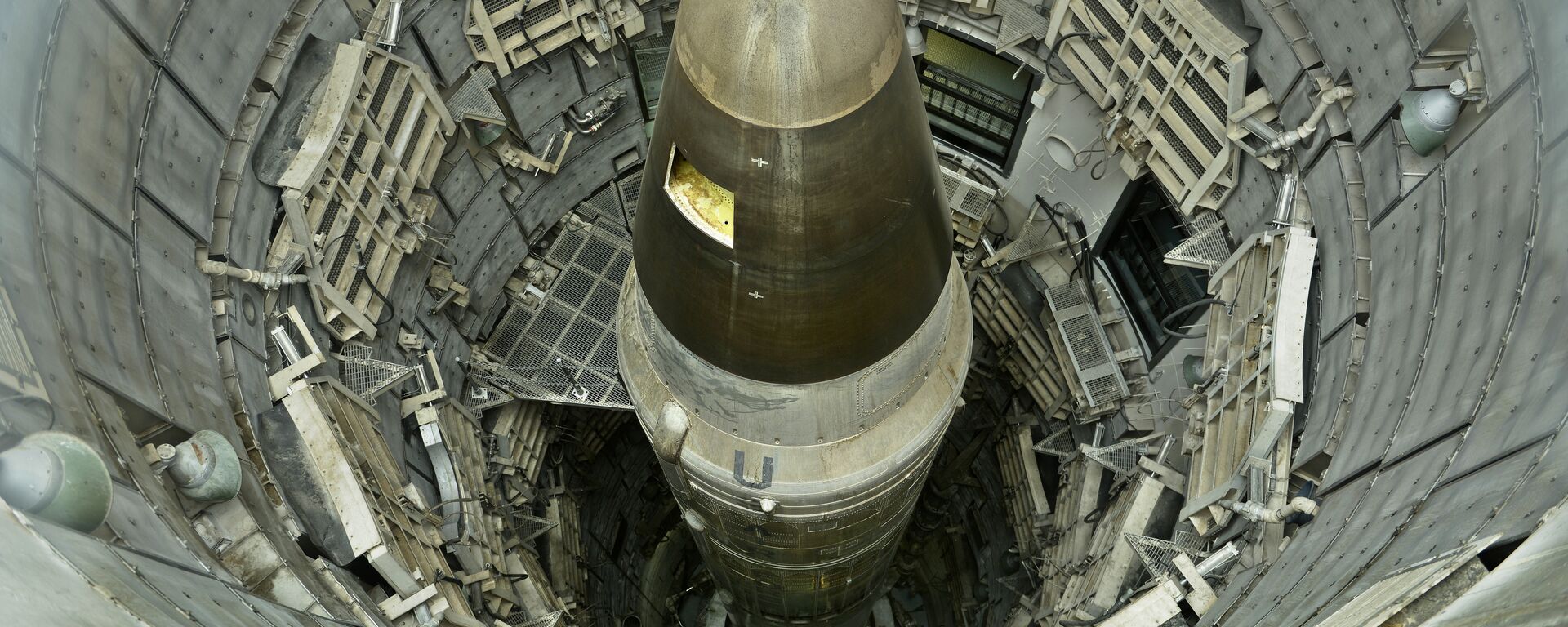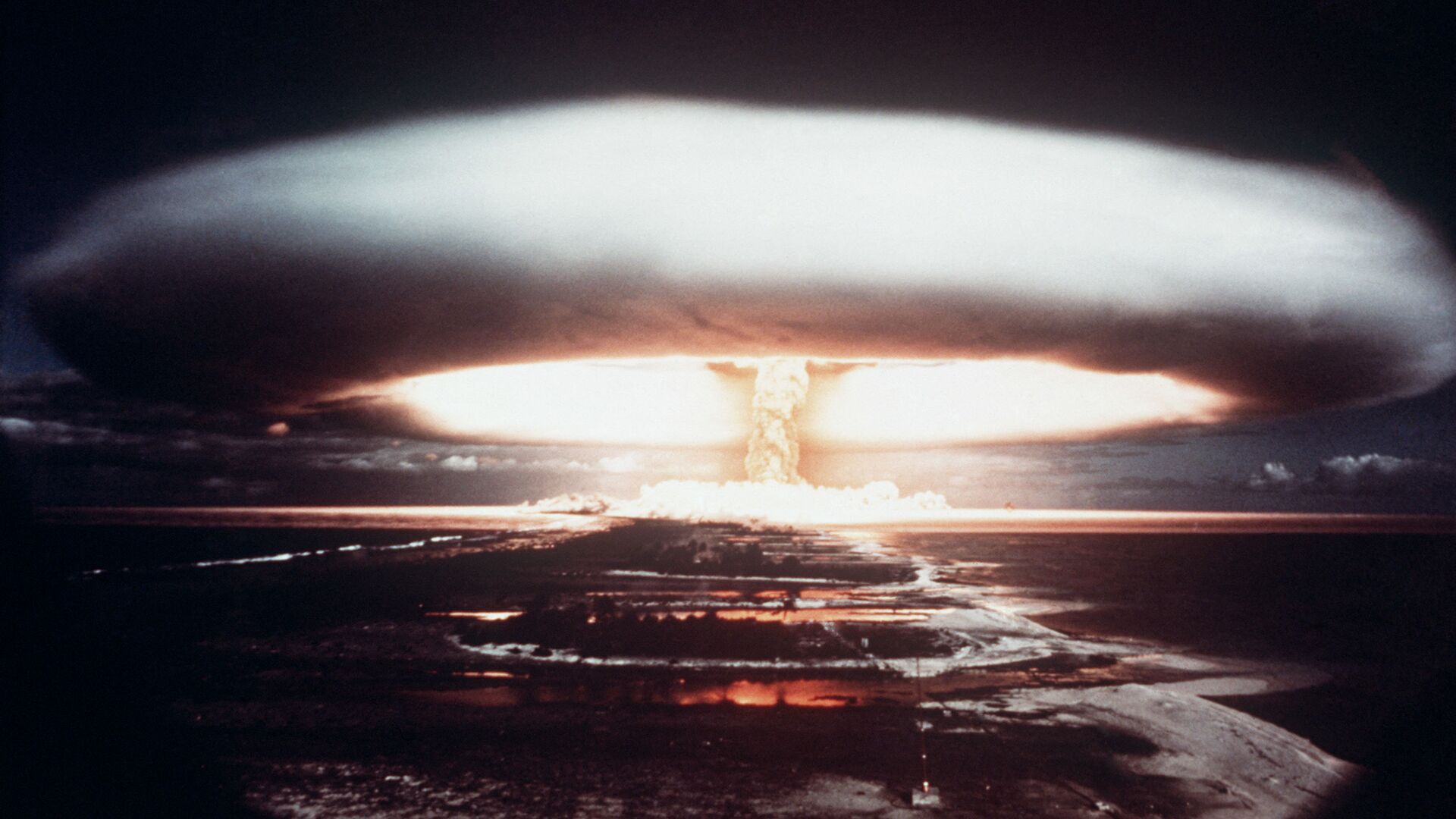https://sputnikglobe.com/20220817/scientists-identify-countries-that-could-weather-post-nuclear-famine-1099703215.html
Scientists Identify Countries That Could Weather Post-Nuclear Famine
Scientists Identify Countries That Could Weather Post-Nuclear Famine
Sputnik International
The main nuclear-holding countries are trying to convince the public and each other that any real prospect of nuclear conflict is ruled out due to assured... 17.08.2022, Sputnik International
2022-08-17T17:02+0000
2022-08-17T17:02+0000
2022-08-17T17:02+0000
world
nuclear war
famine
https://cdn1.img.sputnikglobe.com/img/07e5/03/09/1082290535_0:293:3015:1989_1920x0_80_0_0_b5754ba147fba9a028ade05c348e45a9.jpg
If you feel anxious about a global nuclear conflict erupting all of the sudden, than you might want to consider moving to Australia, Argentina, Brazil, Paraguay or some of the central African countries, as these states would most likely survive what the rest of the globe might not in the wake of such a conflict: mass famine.Using modern climate and crop growth models, scientists from the US, Norway, Germany and Australia calculated that the estimated deaths from a nuclear conflict would pale in comparison to those caused by starvation thereafter – and the kickback won't be limited to those countries exchanging nukes. Any nuclear conflict could cause firestorms that would raise masses of soot into the air, blocking out the sun.With crops failing due to the lack of sunlight, there simply wouldn’t be enough food to feed everyone. In the UK, for instance, there would be a 90% reduction in calories received on average, meaning that most of the country’s population might die from hunger.Even a conflict between minor nuclear powers, such as Pakistan and India, could kill billions from starvation compared to the 50-100 million deaths estimated from the mutual use of the nukes by these two countries.What makes Australia, Africa and almost half of South American so special is that these countries and regions already grow crops resistant to a lack of sunlight, such as wheat, in huge quantities, while running a lesser risk of being hit with a nuke and having a relatively small domestic population. Still, even they would be bound to face problems in the wake of any nuclear conflict, with survivors from starving countries likely to try and move to the lucky neighbors.Naturally, the research makes a number of assumptions, namely suggesting there would be next-to-no international trade. Still, it paints a rough picture of grand problems that humanity might face if any country decides to use nukes.
https://sputnikglobe.com/20220815/study-nuclear-war-between-superpowers-would-starve-5-billion-people-1099631844.html
Sputnik International
feedback@sputniknews.com
+74956456601
MIA „Rosiya Segodnya“
2022
Tim Korso
https://cdn1.img.sputnikglobe.com/img/07e6/03/0d/1093831826_0:0:216:216_100x100_80_0_0_e3f43a960af0c6c99f7eb8ccbf5f812c.jpg
Tim Korso
https://cdn1.img.sputnikglobe.com/img/07e6/03/0d/1093831826_0:0:216:216_100x100_80_0_0_e3f43a960af0c6c99f7eb8ccbf5f812c.jpg
News
en_EN
Sputnik International
feedback@sputniknews.com
+74956456601
MIA „Rosiya Segodnya“
Sputnik International
feedback@sputniknews.com
+74956456601
MIA „Rosiya Segodnya“
Tim Korso
https://cdn1.img.sputnikglobe.com/img/07e6/03/0d/1093831826_0:0:216:216_100x100_80_0_0_e3f43a960af0c6c99f7eb8ccbf5f812c.jpg
nuclear war, famine
Scientists Identify Countries That Could Weather Post-Nuclear Famine
The main nuclear-holding countries are trying to convince the public and each other that any real prospect of nuclear conflict is ruled out due to assured mutual destruction. However, scientists have discovered that, should it happen, the destruction would be much more assured than they imagine, and is hardly limited to being "mutual".
If you feel anxious about a global nuclear conflict
erupting all of the sudden, than you might want to consider moving to Australia, Argentina, Brazil, Paraguay or some of the central African countries, as these states would most likely survive what the rest of the globe might not in the wake of such a conflict: mass famine.
Using modern climate and crop growth models, scientists from the US, Norway, Germany and Australia calculated that the estimated deaths from a nuclear conflict would pale in comparison to those caused by starvation thereafter – and the kickback won't be limited to those countries exchanging nukes. Any nuclear conflict could cause firestorms that would raise masses of soot into the air, blocking out the sun.

15 August 2022, 21:45 GMT
With crops failing due to the lack of sunlight, there simply wouldn’t be enough food to feed everyone. In the UK, for instance, there would be a 90% reduction in calories received on average, meaning that most of the country’s population might die from hunger.
“Everybody understands that the direct effects of nuclear war would be horrific, as we saw in Hiroshima and Nagasaki. Our work shows that more than ten times as many people could die in the rest of the world because of the impacts on climate and agriculture," Professor Alan Robock at Rutgers University, US, said.
Even a conflict between minor
nuclear powers, such as Pakistan and India, could kill billions from starvation compared to the 50-100 million deaths estimated from the mutual use of the nukes by these two countries.
What makes Australia, Africa and almost half of South American so special is that these countries and regions already grow crops resistant to a lack of sunlight, such as wheat, in huge quantities, while running a lesser risk of being hit with a nuke and having a relatively small domestic population. Still, even they would be bound to face problems in the wake of any nuclear conflict, with survivors from starving countries likely to try and move to the lucky neighbors.
"So it wouldn’t be necessarily peaches and cream just for Australia," Robock added.
Naturally, the research makes a number of assumptions, namely suggesting there would be next-to-no international trade. Still, it paints a rough picture of grand problems that humanity might face if any country decides to use nukes.






